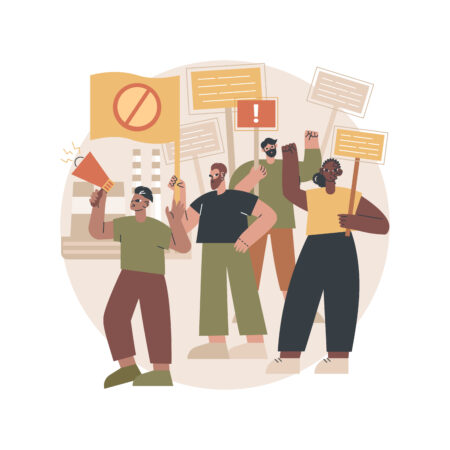The following is a guest post from Dr. Dylan Kissane, Content Manager at DOZ. Follow him on Twitter at @drkissane or visit his website DylanKissane.com.
Arthur Chu is a man on a mission.
Unfortunately for anyone who works in, lives in, invests in, or just appreciates the internet economy, his mission is to destroy the internet as we know it.
Of course, this is not how Chu puts it himself. Indeed, on the face of it, the sorts of things that are driving Arthur Chu in his mission to change the rules around online speech are things that many people might agree with. He’s against bullying, he’s against racism, he’s not a fan of sexism, homophobia, trolling, or comment threads that devolve into name-calling, hatred, and the inevitable references to Adolf Hitler.
In his article last week at Tech Crunch Chu proposes a cure to all of these ills.
Yet in reality, should Chu and his supporters get their way, they would be curing the patient by leaving him dead on the table.
And that’s why the global internet community (including here in France where the laws governing speech are different) needs to be very wary of Chu, his supporters, and their attempts to re-write the rules of the internet.
Chu: Repeal Section 230
Arthur Chu’s solution to the problem of hate speech, various flavors of ‘phobic’ speech, racism, sexism, bullying and trolling online is remarkably simple for a problem that is so complex. He suggests that holding publishers accountable – legally and financially – for the content that is published on their platforms would be sufficient to address the problem and banish hatred from online speech:
Right now you can’t sue digital platforms for enabling harassment on their services, even if they enable harassment through flagrant, willful neglect. If your harasser is able to take fairly basic steps to keep himself anonymous — and if the platform he chooses enables and enforces that anonymity — then there is literally nothing you or the government can do, even if his actions rise to the level of major crimes like attempted murder.
Closing this loophole wouldn’t require giving the Internet “special treatment” compared to other forms of communication…It would require the exact opposite — it would require the United States to remove a law that specifically mandates special treatment for Internet service providers and platforms that no other communications medium has.
The “law” that Chu is referring to is Section 230 of the Communications Decency Act which holds that:
No provider or user of an interactive computer service shall be treated as the publisher or speaker of any information provided by another information content provider.
It’s not often that a single section of a national law earns its own Wikipedia entry but Section 230 is special. David Post, on of the leading internet law specialists in the United States, wrote in the Washington Post that “no other sentence in the U.S. Code, I would assert, has been responsible for the creation of more value than that one”.
And he’s right.
Section 230: Enabling the Internet Economy
By protecting a website from liability for the comments, material, and user-generated content that is posted to it, Section 230 has enabled some of the largest, most innovative, and most profitable companies in the world to emerge in the 20 years since it was passed.
Examples?
Try and imagine what Facebook or Twitter might look like if every single post, update, tweet, and image needed to be cleared by a lawyer before going up online. Consider what the user experience would be when the company lived in fear of being held legally and financially culpable for every post that someone posts to their platform.
Or try and imagine what a modern search engine – Google, Bing, or DuckDuckGo – might offer as a search results page when they could be held responsible for every word that appears on that page. The search engine didn’t write the words that appear on the page but they could be held liable for the words they display all the same.
You could say goodbye to companies like Yelp or Trip Advisor. Who would be willing to host reviews of a business if the business owner could sue them for every bad review they post?
Platforms like Reddit and Craigslist would collapse because even without knowing who was posting the offensive material, the companies would be held responsible for allowing it to be published.
Even a blog that invites comments such as Rude Baguette, the company blog I manage at DOZ, or even my personal blog with its massive 30 unique visitors a day would be stifled. Who would dare take responsibility for comments posted by mostly anonymous strangers when there is a chance of being sued for doing so?
It would probably be a stretch to say that Section 230 drives the internet economy we know today, but it would be entirely accurate to argue that Section 230 enables today’s internet economy.
Chu’s Solution and Why It’s Terrible
Arthur Chu’s suggestion that Section 230 be repealed and that websites and the companies behind them take legal liability for every word posted on their platforms is a terrible solution to the problems he sees in online speech.
Writing at Popehat, attorney and free-speech advocate Ken White explained why Chu’s solution is so terribly bad:
The court system is broken, perhaps irretrievably so. Justice may not depend entirely on how much money you have, but that is probably the most powerful factor. A lawsuit — even a frivolous one — can be utterly financially ruinous, not to mention terrifying, stressful, and health-threatening. What do I mean by financially ruinous? I mean if you are lucky as you can possibly be and hire a good lawyer who gets the suit dismissed permanently immediately, it will cost many thousands, possibly tens of thousands. If you’re stuck in the suit, count on tens or hundreds of thousands.
The suggestion that this system will ease the chaos that would result from the loss of Section 230 is nothing short of lunacy.
White continues, laying out three impacts that would change the internet fundamentally:
- Every single web site out there would have to monitor every single visitor comment or forum post or Tweet or Facebook update — or face liability if the item is actionable.
As explained above, this pretty much ends Facebook, Twitter, and blogging as we know it today.
- Sites will take down visitor comment when someone demands it, because it’s too expensive not to. Result: it will become easy to get any content mentioning you, or your actions, or your business taken down.
White explains that this would leave Yelp “dead as a doornail”, and he’s right. With the cost of defending a random comment – whether defamatory or not – in court running into the thousands, even hundreds of thousands of dollars, it is going to be far cheaper just to delete any comment that someone complains about, or just shut down comments, reviews, and status updates as features altogether. It’s a step backwards.
- Arthur Chu seems to think that removing Section 230 will help end online harassment, because forums and sites and blogs will take down nasty things said about people he supports. Maybe. But does Arthur think that harassers won’t just as quickly use this new tool he’s kindly given them?
It’s obvious, really: if Section 230 was repealed it would open the door to a new level of trolling that would quickly empty the pockets and close the door on any internet companies. Here’s how it would work: John anonymously posts a libelous comment about himself on Facebook, takes a screenshot, and then sends Mr. Zuckerberg and his colleagues a note informing them that they can either pay up or see him in court.
The end result is an internet that is poorer in terms of content, constantly under threat from malicious lawsuits, where increasingly irresponsible users and trolls reign free, and no one can offer or host the honest opinion of anyone else for fear of ending up broken on the floor of a US courthouse.
A Better Solution?
Chu’s solution to the problem of unrestrained speech online is bad, but it shouldn’t imply that the problem he is attempting to address is not real.
It is.
Even critics of Chu such as Sonny Bunch at the Washington Free Beacon can sympathize with his motivations:
Now, as it happens, I tend to agree with Chu that comments sections are more or less useless and terrible. There’s a reason the Free Beacon has never had them and will never have them: the comment section of any website with more than about 1,000 readers will almost instantaneously devolve into a pit of crude name calling and casual labeling with a healthy sprinkle of anti-Semitism (and other forms of racism) and overt sexism. Anonymity does not breed manners.
“The difference between Chu and I,” notes Bunch “is that I don’t think these things should effectively be made illegal via financially ruinous lawfare.”
Is there a better solution? Perhaps not. Certainly I don’t have anything new that I can offer, though I realize this leaves me critiquing Chu for being reckless without even providing a less-reckless option save ‘don’t change anything’.
I also don’t think that the restrictive speech environment that countries like France and the UK embrace are better alternatives. Being offended by something should not be cause enough to arrest, fine, imprison, or deny the speech of the offensive person.
Slander, defamation, and outright lies? Yes, these should be actionable, and they are – even in the US.
But offense is taken, never given, and Europe’s notions of limited speech should not serve as a model for the US or anywhere else.
So maybe ‘don’t change anything’ is the better option in this case.
Will it stop online bullying? No. Will it help people escape the online hatred, the trolling campaigns, and the disgusting depths that some corners of the internet plunge to? No, again. Will it stop a single negative tweet, hateful status update, or distastefully altered image from being published on a social network? Assuredly not.
But it will enable the internet economy we rely on, work in, thrive on, share in, and mostly find enjoyable, useful, entertaining and informative to continue to evolve.
And that’s something that Arthur Chu and his repressive and ill-thought-through demand to repeal Section 230 cannot say.
Did you like it? 4.5/5 (30)








